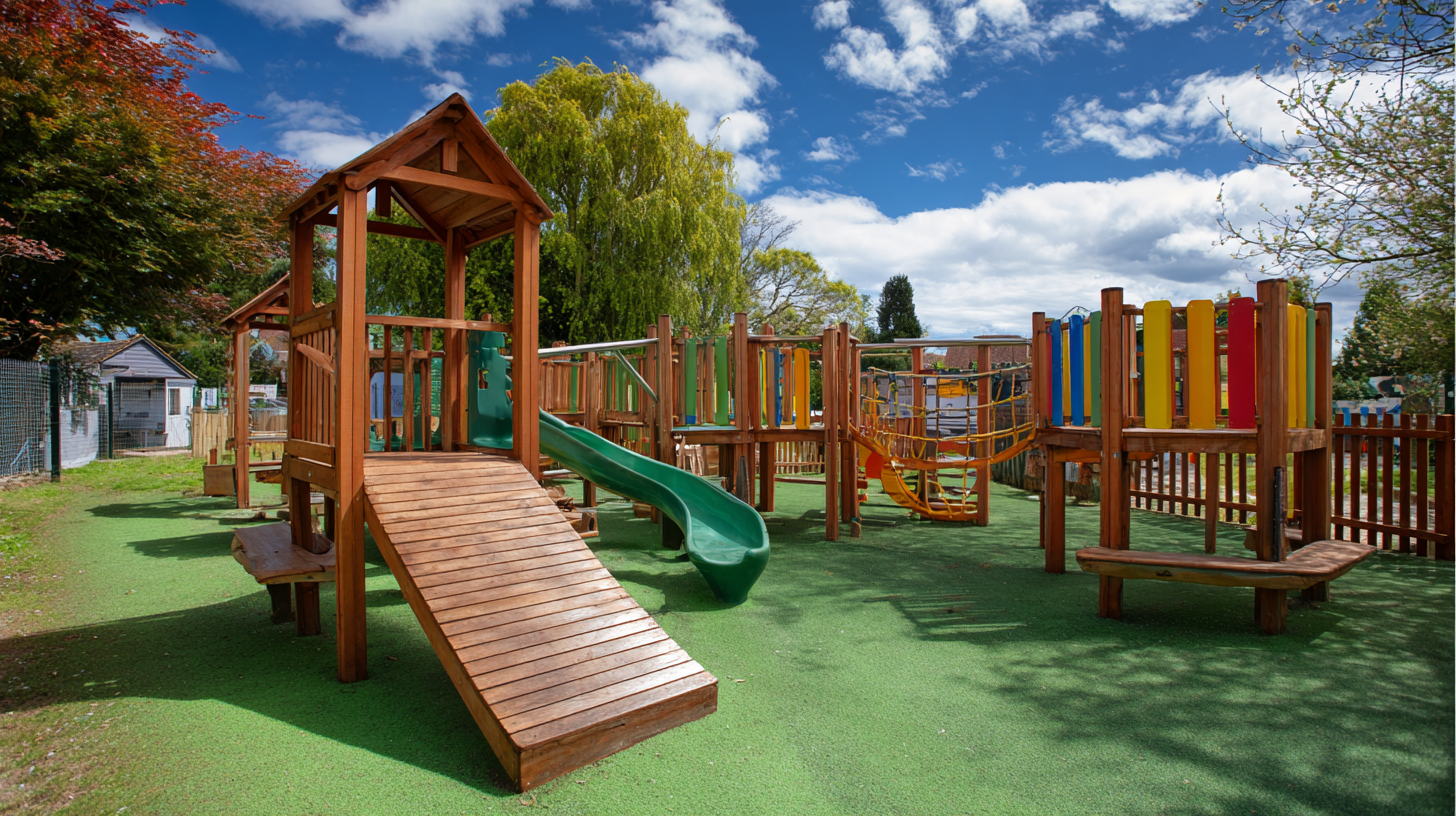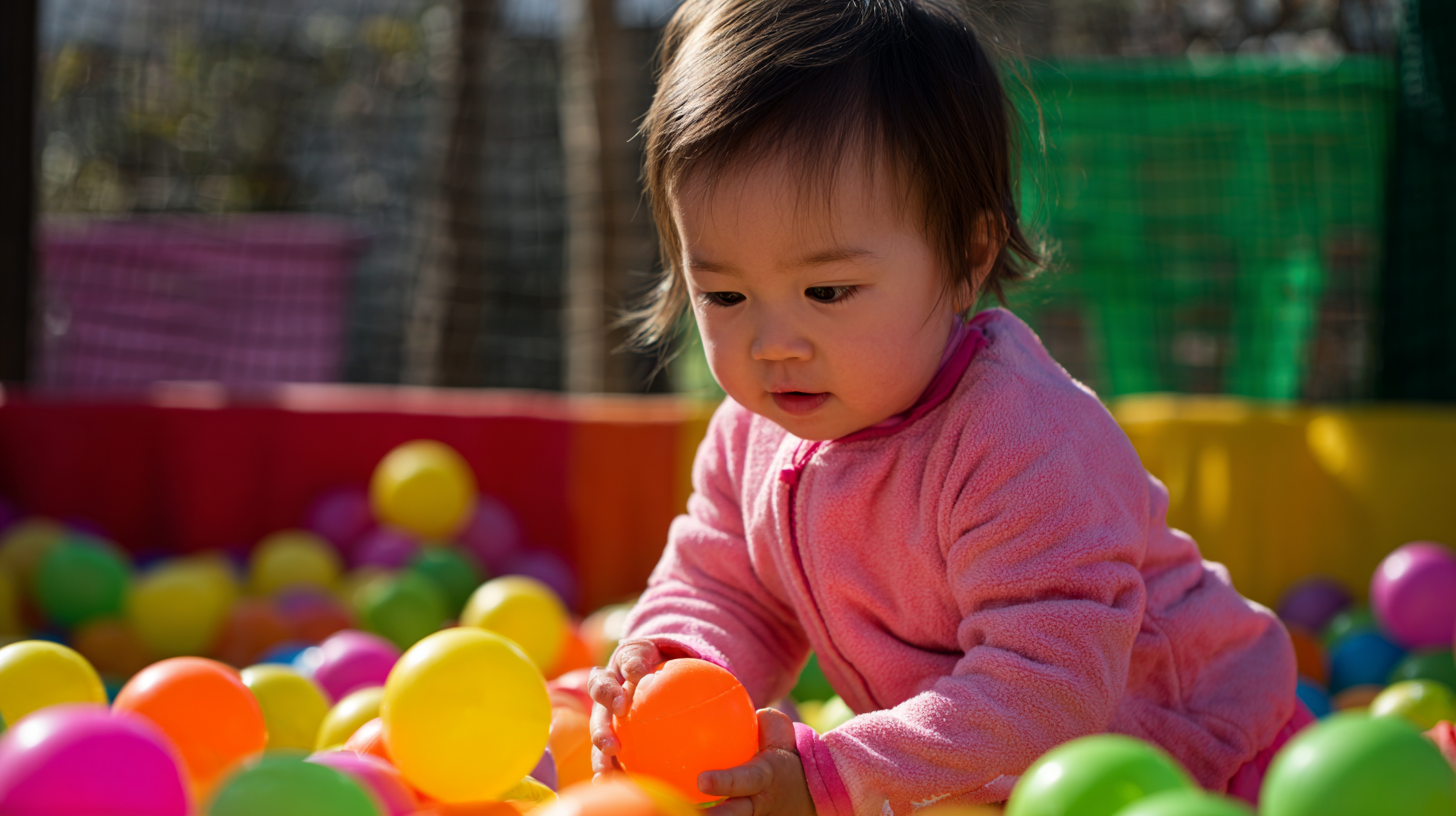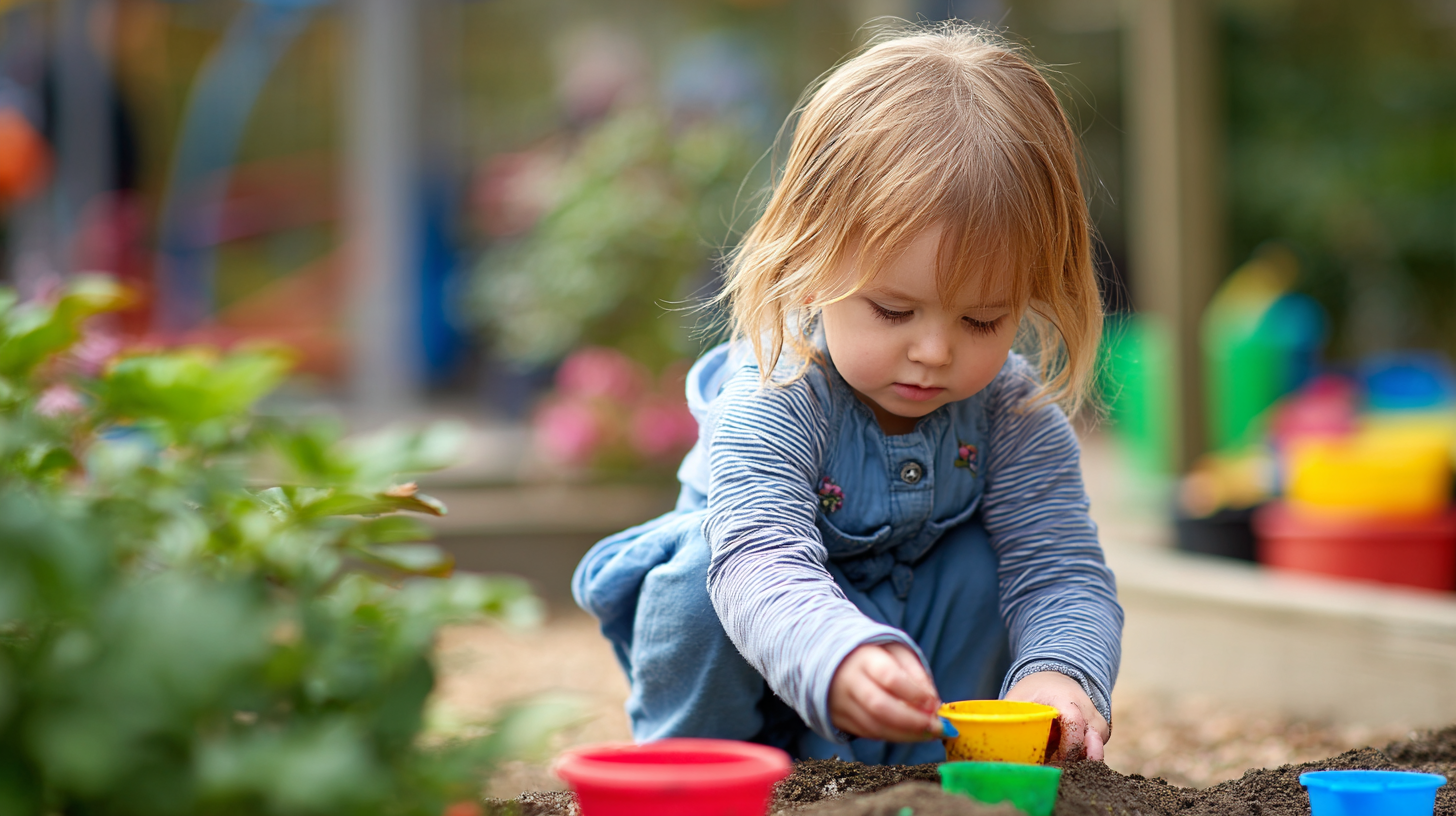 +86-13901441113
+86-13901441113




Nursery Outdoor Play is an essential aspect of early childhood education, providing young children with unique opportunities to explore, interact, and learn in a natural environment. According to a report by the National Association for the Education of Young Children, outdoor play not only enhances physical health but also contributes significantly to cognitive development and social skills. In fact, a study by the Outdoor Foundation indicated that children who engage in regular outdoor play exhibit improved attention spans and creativity, fostering lifelong habits of active living. As the global market for outdoor educational products and services is projected to reach $17 billion by 2025, recognizing the value of Nursery Outdoor Play becomes increasingly critical. This blog will delve into the myriad benefits of outdoor play in nursery settings and highlight emerging trends that are reshaping the landscape of early childhood education worldwide.

Nursery outdoor play is an essential component of early childhood education, reflecting the growing recognition of its significance for children's development. This concept encompasses play activities conducted outside, where children engage with natural environments, fostering their creativity, social skills, and physical health. According to recent studies, outdoor play enhances cognitive and emotional well-being, allowing children to explore their surroundings and develop critical thinking skills.
Research shows that children benefit immensely from outdoor learning environments, as these settings promote collaboration and communication among peers, essential for social development.

Furthermore, industry reports indicate a rising trend in advocating for outdoor play in early childhood education globally. For instance, a study highlighted that children participating in regular outdoor play exhibit increased physical strength and improved mental health outcomes. Data reveals that outdoor play is linked to reduced stress levels and increased happiness among children, which is crucial during their formative years.
With the emphasis on holistic development, educators and parents alike are increasingly recognizing the importance of incorporating outdoor play into daily routines, ensuring that young learners can thrive both physically and emotionally in today’s fast-paced world.
Outdoor play is essential for child development and well-being, providing numerous cognitive, social, and physical benefits. Studies, including a report by the World Health Organization, indicate that engaging in outdoor activities allows children to develop critical motor skills, enhance their creativity, and improve their problem-solving capabilities. Furthermore, outdoor environments can alleviate stress and anxiety, as children connect with nature, fostering emotional resilience.
To maximize the benefits of outdoor play, consider these tips: Encourage unstructured playtime, allowing children to explore and interact with their surroundings freely. Incorporating natural materials, such as sand, water, and leaves, can stimulate imaginative play and sensory learning. A recent market analysis published by Allied Market Research predicts that the global outdoor play equipment market will reach $3.8 billion by 2025, illustrating the growing recognition of outdoor play’s importance in child development.
Additionally, outdoor play promotes social skills such as cooperation and conflict resolution. As children engage in group activities, they learn how to share, communicate, and negotiate, laying the groundwork for strong interpersonal relationships throughout their lives. Creating safe, engaging playspaces can foster these vital experiences and contribute to a healthier, happier generation.
| Benefit | Description | Global Market Trend | Estimated Growth Rate (2023 - 2028) |
|---|---|---|---|
| Physical Health | Enhances children's physical fitness through active play. | Increasing demand for outdoor play facilities in daycare centers. | 8% CAGR |
| Social Skills | Promotes interaction and teamwork among children. | Growing popularity of outdoor group activities. | 7% CAGR |
| Cognitive Development | Encourages exploration and curiosity, fostering learning. | Increase in educational programs incorporating outdoor learning. | 9% CAGR |
| Emotional Well-being | Reduces stress and enhances mood through nature exposure. | Rising awareness of mental health benefits for children. | 7.5% CAGR |
| Creativity | Stimulates creative thinking through unstructured play. | Emphasis on STEAM education boosting demand for creative outdoor spaces. | 8.5% CAGR |
The nursery outdoor play equipment market has seen significant growth in recent years, reflecting a global shift towards recognizing the importance of outdoor play for early childhood development. According to a report by ResearchAndMarkets, the global market for outdoor play equipment is expected to reach $25 billion by 2027, growing at a CAGR of around 5% from 2020 to 2027. This growth is driven by an increasing emphasis on physical activity in early childhood education, as well as growing awareness among parents and educators about the cognitive and social benefits of outdoor play.

To maximize the effectiveness of nursery outdoor play, consider incorporating a variety of equipment that encourages different types of play. For instance, climbing structures promote physical strength and coordination, while sand and water play tables enhance sensory experiences and imaginative play. Additionally, integrating natural elements into play spaces, such as logs, rocks, and plants, can stimulate exploration and creativity.
Tip: Parents and educators can support outdoor play trends by selecting high-quality, safe equipment that aligns with developmental milestones. When planning outdoor play areas, ensure diverse play opportunities that cater to various age groups, enabling children to explore while staying engaged and active. Engaging children in planning their play spaces can also foster a sense of ownership and responsibility.
Innovative approaches to enhancing outdoor play experiences are gaining traction as research highlights the numerous benefits of outdoor play for children. Studies indicate that outdoor play is essential not just for physical development but also for fostering social skills and emotional well-being. For instance, the Canadian municipal outdoor play policy demonstrates how structured environments can significantly increase opportunities for children to engage in outdoor activities. The policy's findings reveal that children who have access to well-designed play spaces exhibit improved health outcomes and social interactions.
Moreover, a recent exploration of outdoor play experiences among preschool children with autism spectrum disorder underscores the importance of inclusive play environments. This study found that adequate outdoor play can help these children improve their sensory integration and social engagement, which are often challenging for them. By creating innovative outdoor play strategies tailored to diverse needs, such as sensory-rich environments or accessible equipment, caregivers and educators can dramatically enhance the outdoor play experience for all children, ensuring they develop critical life skills while enjoying the natural world.
Outdoor play is an essential component of early childhood education, fostering physical, social, and cognitive development. Engaging activities such as nature scavenger hunts, obstacle courses, and sensory gardens not only enhance children's motor skills but also promote teamwork and problem-solving abilities. According to a report by the American Academy of Pediatrics, children who regularly engage in outdoor play exhibit improved concentration and reduced anxiety levels. This aligns with current trends in the global market, where educational institutions are increasingly investing in outdoor learning environments to support holistic child development.
To maximize the benefits of outdoor play, educators can incorporate various activities that cater to different interests and developmental stages. For example, incorporating simple gardening tasks can teach children about responsibility and the importance of nature. Additionally, setting up thematic outdoor play sessions around seasons or community helpers can stimulate children's creativity and curiosity.
**Tips for Successful Outdoor Play:**
- Ensure safety by inspecting the outdoor space for hazards before playtime.
- Rotate activities to keep children engaged and excited about exploring new skills.
- Encourage children to express their thoughts and feelings about their outdoor experiences to enhance emotional development.





